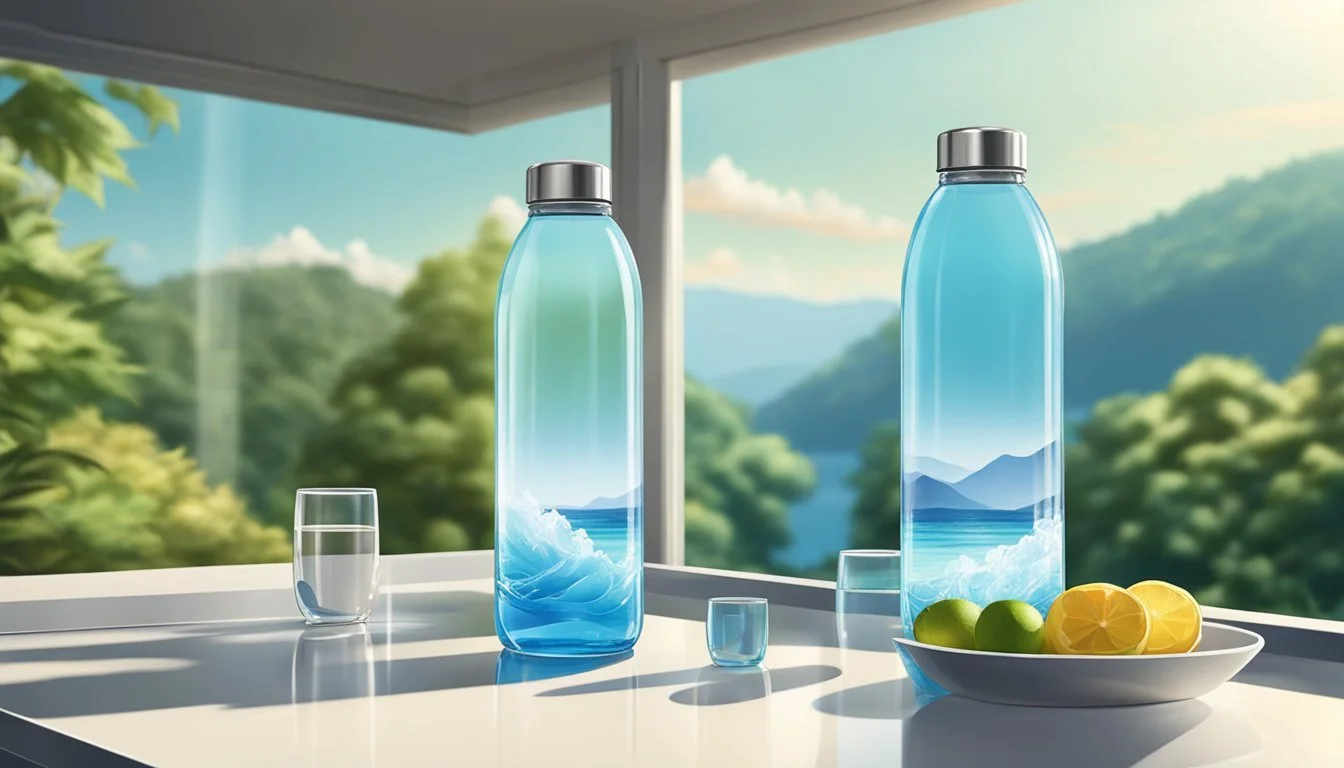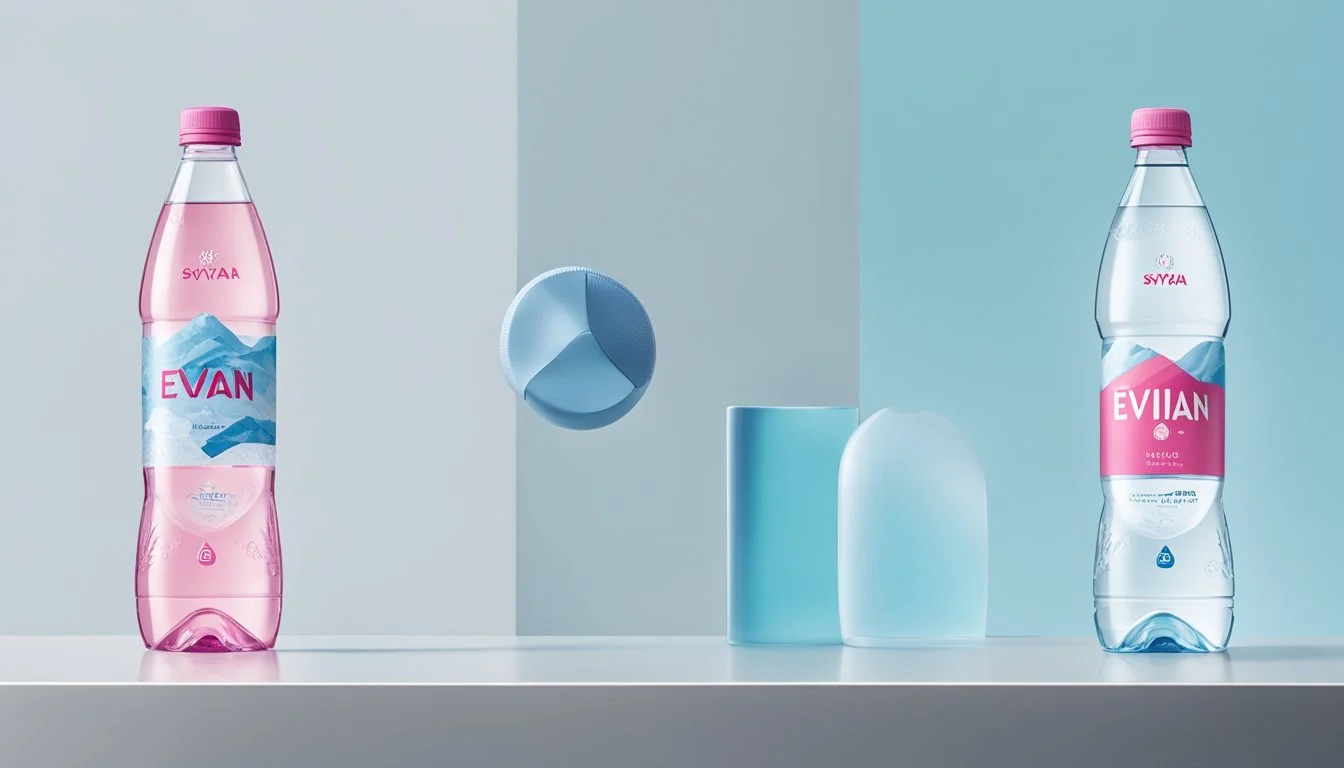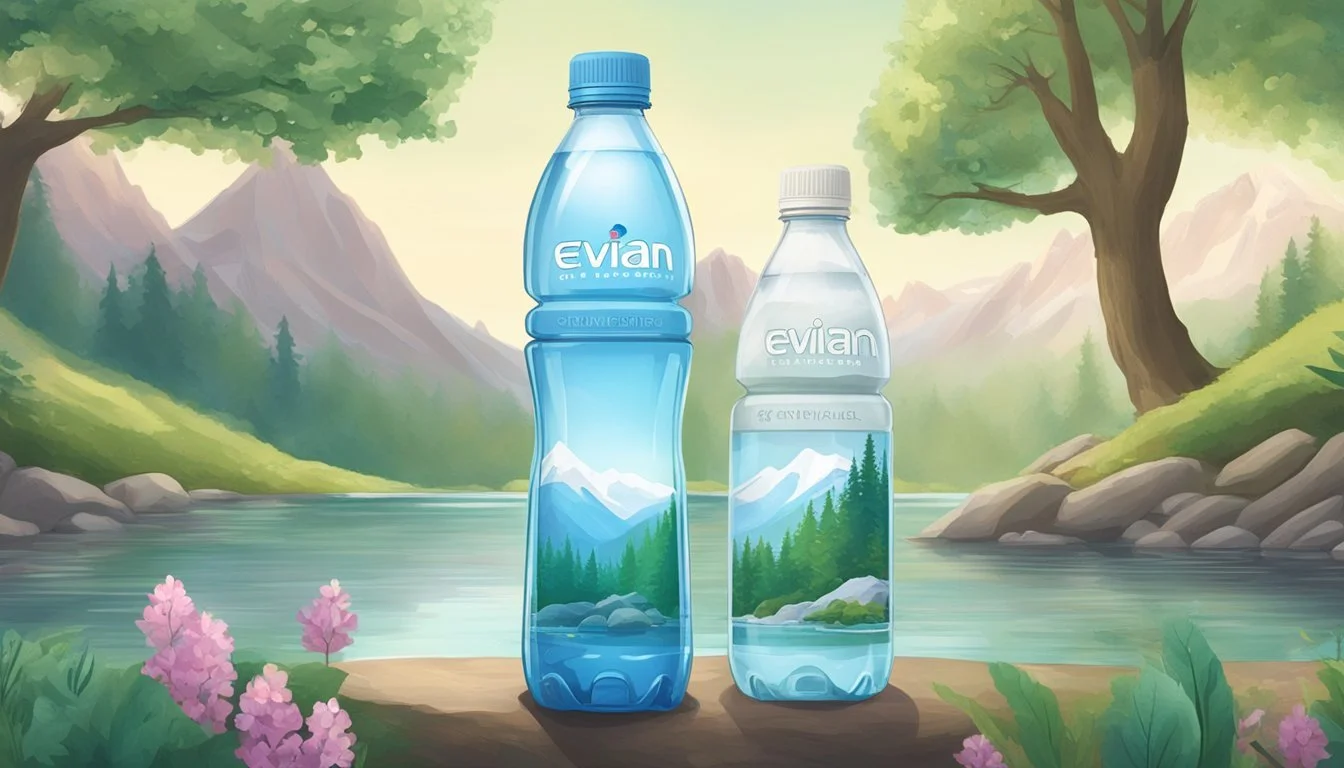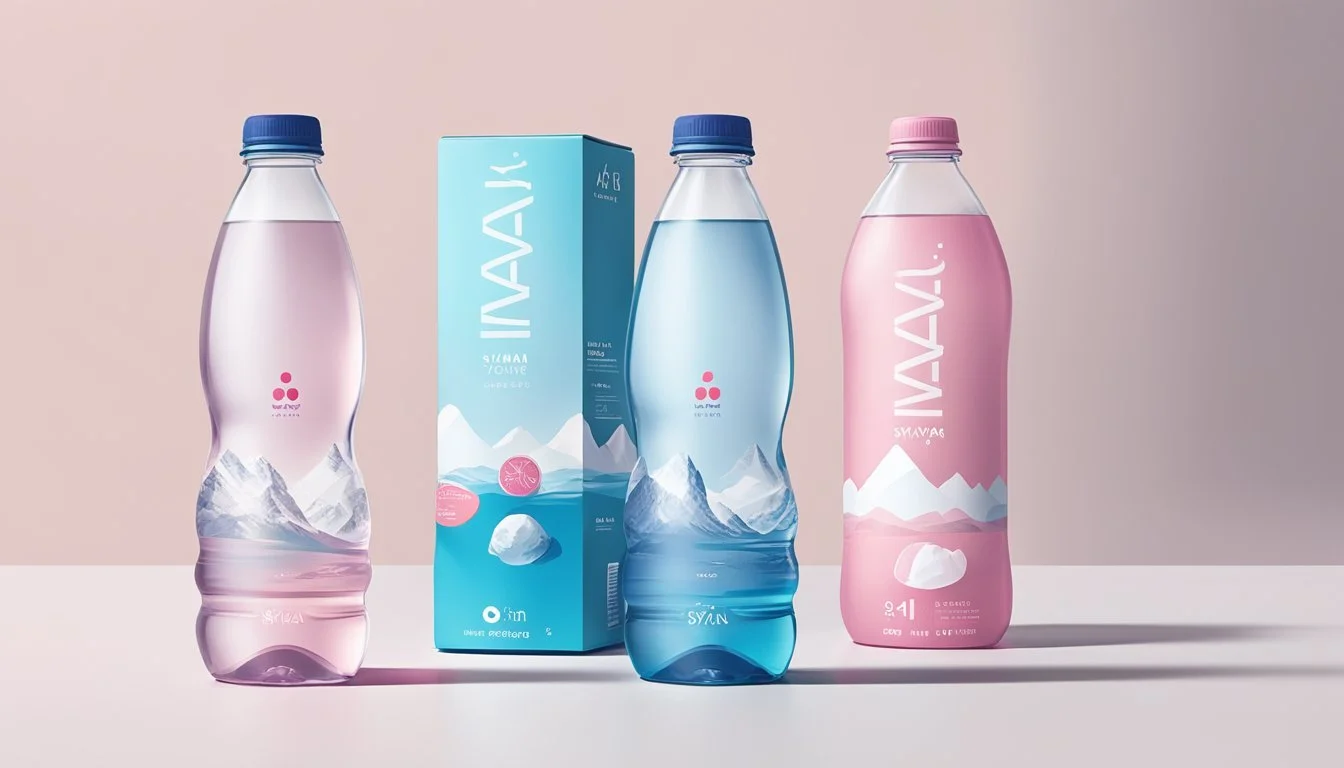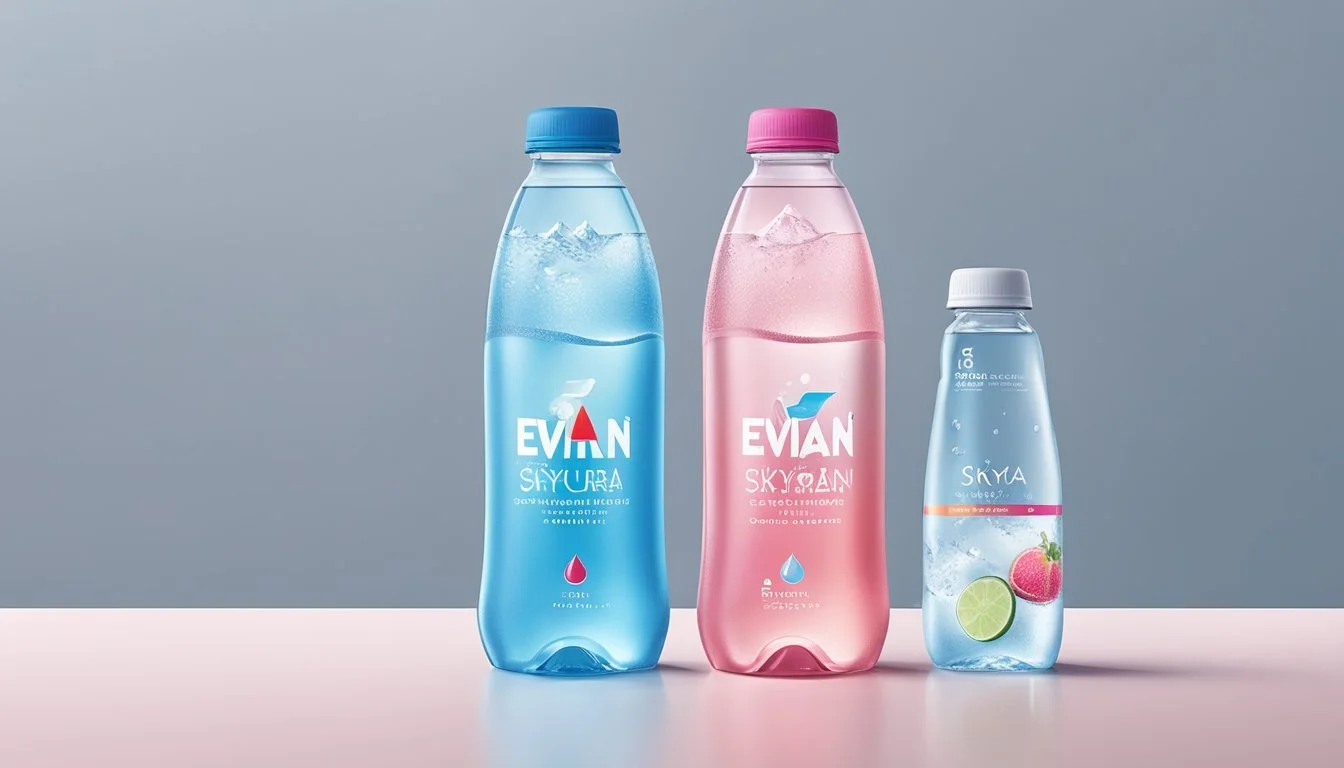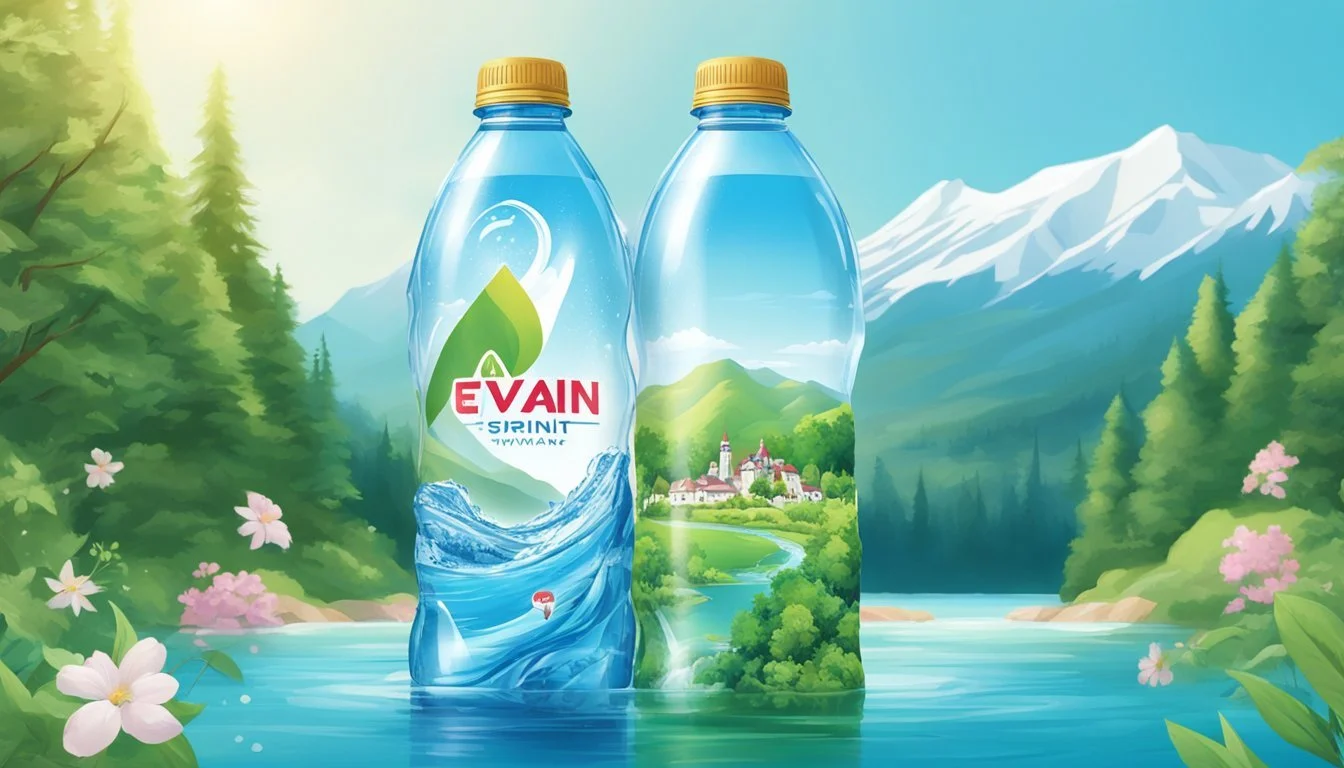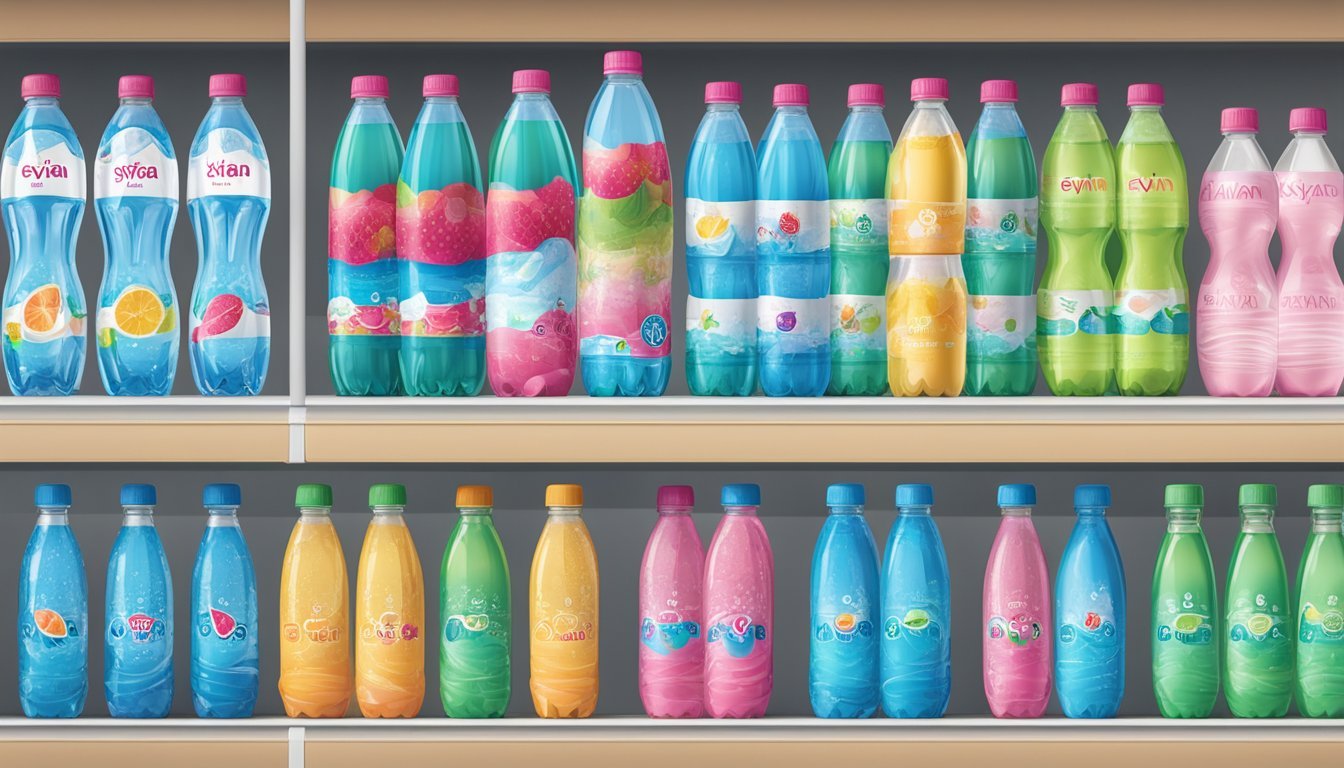Evian vs. Skyra
Which Bottled Water is Better? A Comparison Guide
Finding the best bottled water can be a frustrating journey for consumers focused on hydration and taste. Evian and Skyra are two popular choices that often stand out in the crowded market. Evian, sourced from the French Alps, has long been lauded for its natural mineral content and smooth taste.
Skyra, on the other hand, is sourced from Iceland and boasts a pristine, high-pH composition. When comparing the two, many users report that Skyra's high alkalinity offers a refreshing and crisp hydration experience that is hard to match.
Both brands provide high-quality options, but the choice often comes down to personal preference regarding taste and mineral content. Exploring these differences further can help consumers make an informed decision on which water better suits their hydration needs.
Bottled Water Industry Overview
The bottled water industry has seen remarkable growth due to an increasing demand for convenient and safe drinking options. Key variations include the diversity of brands and concerns about environmental sustainability.
Prominent Brands in Bottled Water
Prominent brands in the bottled water market include Evian, Fiji, Dasani, Aquafina, Voss, Smartwater, Nestlé, Poland Spring, Deer Park, and LIFEWTR. Each brand often markets unique qualities like mineral content, source, or packaging.
For instance, Evian is known for its high calcium and magnesium content. Fiji emphasizes its natural artesian source. Dasani and Aquafina, both owned by major beverage corporations, are popular for their purification processes. Voss stands out with its sleek glass bottles. Consumers often choose based on taste, health benefits, and brand reputation.
Bottled Water vs. Tap Water
When comparing bottled water to tap water, bottled water is often perceived as purer and safer. The FDA regulates bottled water, ensuring specific safety standards. Tap water, regulated by the EPA, varies in quality depending on local infrastructure.
Bottled water offers convenience and a consistent taste, but it is more expensive than tap water. Even reputable brands like Nestlé and Poland Spring highlight the purity and mineral content of their products, appealing to consumers prioritizing health and hydration.
Environmental Concerns and Sustainability
The environmental impact of bottled water is significant, primarily due to plastic waste. The production and disposal of plastic bottles contribute to pollution. Brands are increasingly shifting towards recycled plastic, boxed water, and glass bottles to reduce environmental harm.
Sustainability initiatives are promoted by companies like LIFEWTR and Voss. Consumers are encouraged to recycle or opt for environmentally friendly packaging to mitigate adverse effects. Despite efforts, plastic waste remains a critical issue in the bottled water industry.
Understanding Water Sources and Purification
Bottled water can come from various natural sources and undergoes specific purification processes. Here, the discussion centers on natural sources like springs and aquifers, how the water travels from these sources to the bottle, and different purification methods.
Natural Sources: Springs and Aquifers
Natural spring water and aquifers are the primary sources for many bottled water brands. Spring water originates from underground formations where water flows naturally to the surface. These springs are often found in mountainous regions, providing a constant flow of mineral-rich water.
Aquifers are underground layers of water-bearing rock where water accumulates. This water is usually filtered through layers of soil, sand, and rock, gathering minerals along the way. Brands like Evian and Skyra often source their water from such natural springs or aquifers, ensuring a unique mineral composition.
The Journey of Water: From Source to Bottle
The path water takes from its source to the consumer involves several steps. Initially, water is collected from natural spring water or aquifers. This water is transported through pipelines or often gravity-fed systems to a processing facility.
At the facility, the water undergoes various checks for purity and safety. These checks ensure the water remains free from contaminants while retaining its natural mineral content. Finally, the water is bottled in sterile environments to maintain its cleanliness and quality until it reaches the consumer.
Purification Processes
Even though spring or aquifer water is considered naturally pure, additional purification processes are often employed. Filtration can be used to remove particulate matter. Reverse osmosis is another method that forces water through semi-permeable membranes to remove impurities.
Some brands use ionization to adjust pH levels or ozone treatment to ensure microbiological safety without using chlorine. Different purification methods ensure that the bottled water retains its taste and mineral content while being safe for consumption. Reviewing the purification processes can provide insights into the quality and safety of the bottled water you choose.
Analyzing Evian and Skyra
Evian and Skyra are two top-tier bottled water brands known for their unique qualities and origins. This section will explore the distinct attributes of each brand, highlighting what sets them apart.
Evian: Origin and Distinct Qualities
Evian water hails from the French Alps, a region renowned for its pristine environment. Sourced from the Cachat Spring, Evian undergoes a natural filtration process through glacial sand. This journey enriches the water with essential minerals, enhancing its mineral content.
Key Attributes:
Mineral Content: Rich in minerals like calcium and magnesium.
pH Level: Slightly alkaline, with a pH of 7.2.
Hydration: Known for its smooth taste and hydrating properties.
The high calcium content helps support bone health, while the magnesium aids in muscle function. The naturally balanced composition makes Evian a preferred choice for those seeking mineral-rich hydration.
Skyra: Purity and Brand Proposition
Skyra water distinguishes itself with its commitment to purity. Originating from Iceland, Skyra is naturally filtered through layers of volcanic rock, which enhances its cleanliness and mineral composition.
Key Attributes:
Purity: Virtually free of nitrates and other contaminants.
Mineral Composition: Offers a balanced mix of essential minerals.
Sustainability: Bottled in environmentally friendly packaging.
Skyra's high purity level ensures it is free from impurities, offering a clean and refreshing taste. The volcanic filtration process adds a subtle mineral profile, making it an appealing option for health-conscious consumers.
The commitment to sustainable practices is also a notable aspect, aligning with modern environmental concerns. This makes Skyra an excellent choice for those valuing both health and eco-friendliness.
Health and Hydration Benefits
Evian and Skyra bottled waters boast various health and hydration advantages. These benefits primarily revolve around their mineral content and pH levels, which can influence hydration efficiency and overall wellness.
Electrolytes and Mineral Benefits
Evian provides a unique mix of minerals beneficial for hydration and overall health. Its origins in the French Alps contribute to a rich mineral profile, including calcium, magnesium, and potassium. These minerals support bone health, muscle function, and electrolyte balance.
Skyra, sourced from Iceland, also contains essential minerals. It features higher silica content, which supports skin health and joint function. The distinct mineral compositions of both waters cater to different health needs, making their benefits complementary.
pH Levels and Body Balance
Evian has a balanced pH level of around 7.2, which aligns closely with the body's natural pH. This neutrality supports overall hydration without drastically altering body pH levels.
Skyra, on the other hand, is marketed as alkaline water with a pH of about 8.8. Alkaline water proponents suggest that it neutralizes acidity in the body, potentially aiding digestion and enhancing hydration efficiency. For those seeking a specific pH balance, Skyra offers a distinct advantage.
Aligning with the key factors such as mineral content and pH can help consumers make an informed choice between these two premium bottled waters.
Taste Profile and Consumer Preference
Evian and Skyra each offer distinct taste profiles shaped by their unique mineral contents and pH levels. Understanding these differences can help consumers make an informed choice based on personal preferences.
The Role of Taste in Bottled Water Selection
Taste is a critical factor in bottled water selection. Evian is often praised for its smooth and neutral taste. This can be attributed to its mineral content which includes calcium and magnesium.
Skyra, on the other hand, offers a cleaner taste profile with a balanced mix of minerals, making it slightly more alkaline. To some, Skyra may taste crisper compared to Evian's more rounded texture. Consumers often develop preferences based on these subtle differences.
How Different Factors Influence Taste
Several factors influence the taste of bottled water. Mineral content is the primary determinant. Evian has a higher concentration of bicarbonates and calcium, contributing to its unique flavor. Skyra, sourced from pristine Icelandic springs, offers a lower mineral content, resulting in a milder taste.
The pH level also plays a significant role. Evian's nearly neutral pH level of 7.2 complements its smooth taste. Skyra, with a slightly higher alkaline pH level of 8.88, provides a fresher, crisper sensation on the palate.
Purity is another factor influencing taste. Both brands maintain high purity standards, ensuring no off-putting flavors. Taste tests by water sommeliers often highlight these nuanced differences, guiding consumers in their choice.
Packaging Innovations and Market Trends
In recent years, bottled water brands like Evian and Skyra have prioritized sustainability in their packaging innovations.
Evian has committed to making all its plastic bottles from 100% recycled plastic by 2025. This move aligns with global trends aiming to reduce plastic waste and promote a circular economy. On the other hand, Skyra has also introduced efforts to utilize recycled materials across its product lines.
Plastic vs. Glass Bottles
While plastic bottles remain prevalent due to their lightweight and convenience, there’s a growing shift towards glass bottles. Glass is perceived as a more sustainable option because it’s endlessly recyclable and does not leach chemicals.
Trends in Packaging:
Recycled Materials: Both brands are increasingly using recycled plastic in their bottles.
Minimalist Design: There is a noticeable trend towards simple, eco-friendly packaging that uses less material.
Alternative Materials: Innovations include the use of paper-based bottles and biodegradable materials.
Market Trends:
The bottled water industry is responding to consumer demand for environmentally friendly products. There is a focus on reducing plastic and exploring alternative packaging solutions. Companies are investing in new technologies and collaborating with sustainability organizations to meet these goals.
Consumers are increasingly choosing brands that demonstrate a commitment to the environment. Both Evian and Skyra are adapting to these shifts, making sustainable packaging an essential aspect of their brand identities. This trend is not only beneficial for the planet but also positions these brands favorably in the competitive bottled water market.
Convenience and Availability
Evian has a strong global presence, making it easily accessible in supermarkets, convenience stores, and specialty food shops. Its extensive distribution network ensures that consumers can find it almost anywhere, from local grocery stores to large retail chains.
Skyra, on the other hand, might not be as widely available as Evian. Skyra is often found in select specialty stores and higher-end supermarkets. This could make it less convenient for everyday purchases compared to Evian.
Comparison Table
Aspect Evian Skyra Grocery Stores Widely Available Limited Availability Convenience Stores Easily Found Rarely Found Specialty Shops Commonly Stocked Selectively Stocked
In summary, for those prioritizing ease of access, Evian is the more convenient choice due to its widespread availability. Skyra offers a more niche market presence, which may appeal to specific consumer preferences but limits its overall accessibility.
More About Evian
Evian vs Mountain Valley Spring Water: Which Bottled Water is Better?
Evian vs Richard's Rainwater: Which Bottled Water is Better?
Evian vs Whole Foods Italian Still Mineral water: Which Bottled Water is Better?

